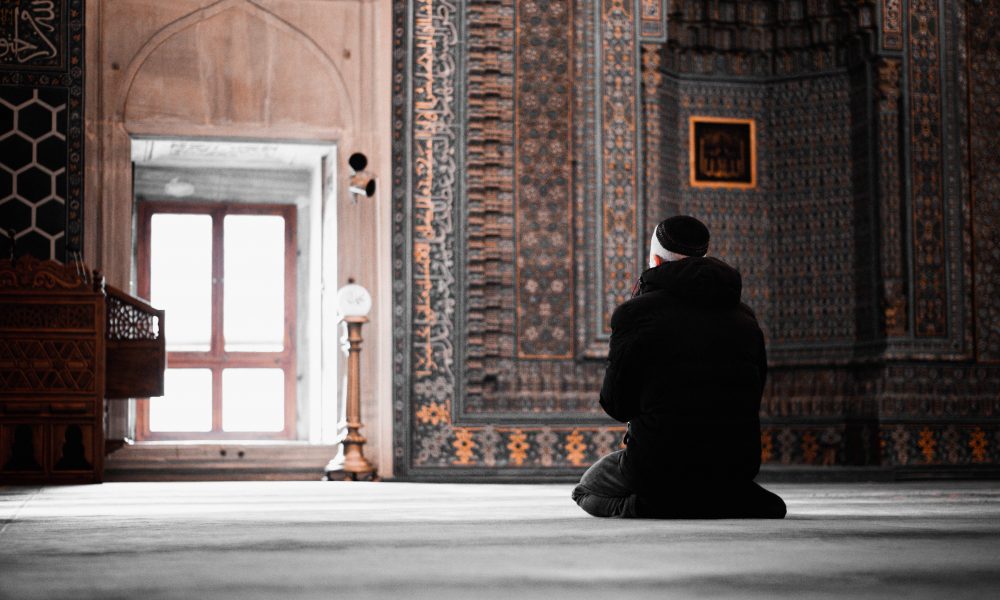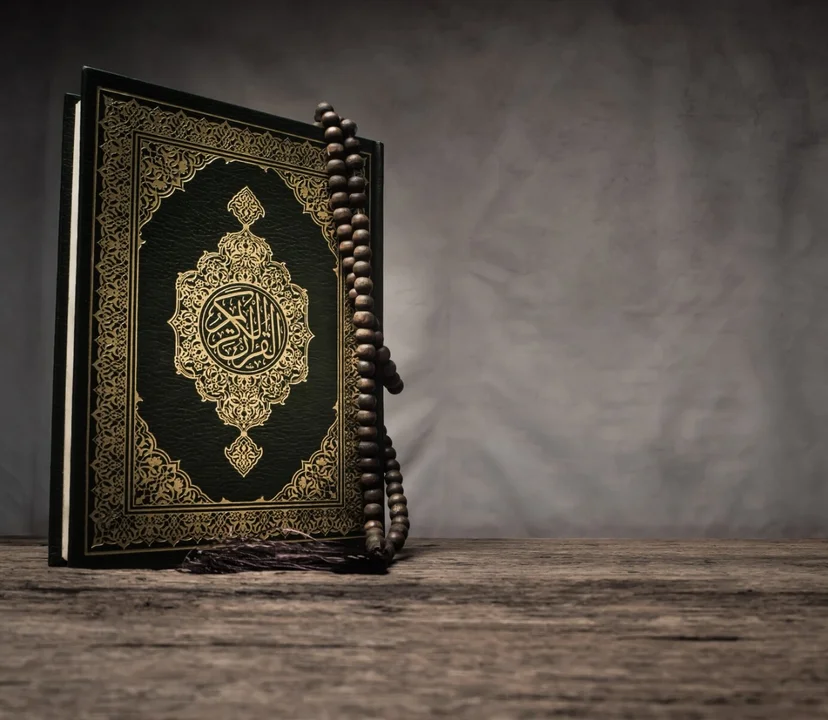Allah Y Barek Fikoum: A Journey Through Meaning, Significance, And Spiritual Reflections
Let’s talk about something that resonates deeply within the heart of many cultures and faiths: the phrase "Allah y barek fikoum." It’s more than just words; it’s a blessing, a connection, and a reminder of the divine presence in our lives. This phrase carries a profound meaning that transcends language barriers, offering warmth and positivity to those who hear it. Whether you’re familiar with it or hearing it for the first time, we’re about to dive into its essence, history, and relevance in today’s world.
So, what exactly does "Allah y barek fikoum" mean? In simple terms, it translates to "May Allah bless you." But don’t let the simplicity fool you—there’s a depth here that touches the soul. This phrase is often used in Arabic-speaking communities as a way to express gratitude, goodwill, or even as a response to someone sneezing. It’s like saying "bless you" but with a spiritual twist that acknowledges the power and mercy of God.
And here’s the kicker—it’s not just for religious folks. Even if you’re not particularly spiritual, there’s something about this phrase that feels universal. It’s a reminder that blessings come in all shapes and sizes, and sometimes, all it takes is a simple phrase to lift someone’s spirits. So, buckle up because we’re about to explore the beauty behind "Allah y barek fikoum" and why it matters.
Understanding the Phrase: Breaking Down "Allah y barek fikoum"
When you break it down, "Allah y barek fikoum" is a phrase rich in meaning. "Allah" refers to God, the supreme being in Islam. "Y barek" means "may He bless," and "fikoum" translates to "you all" or "you." So, when you put it together, it becomes a powerful invocation for divine blessings. But why does this matter?
In many cultures, phrases like this aren’t just casual expressions—they’re deeply rooted in tradition and faith. They serve as reminders of our connection to something greater than ourselves. For Muslims, "Allah y barek fikoum" is a way to acknowledge the presence of God in everyday life. It’s a small yet meaningful gesture that shows respect, gratitude, and love.
Think about it: how often do we say things without really thinking about their meaning? This phrase forces us to pause and reflect. It’s not just about saying "thank you" or "bless you"—it’s about recognizing the blessings in our lives and sharing that positivity with others. And that’s something everyone can appreciate, regardless of faith or background.
The Historical Context: Where Did It Come From?
Like most phrases, "Allah y barek fikoum" has a history that dates back centuries. It’s deeply embedded in Islamic culture and tradition, particularly in Arabic-speaking regions. The phrase likely originated from the teachings of the Quran and Hadith, where blessings and gratitude are emphasized as essential parts of faith.
Historically, this phrase would be used in various contexts—during prayers, after meals, or even as a greeting. It was (and still is) a way to acknowledge the blessings of life and express gratitude to God. Over time, it became a staple in daily conversations, transcending formal religious settings and becoming a part of everyday language.
What’s fascinating is how this phrase has evolved while maintaining its core meaning. In some regions, variations of the phrase exist, but they all carry the same essence: a wish for divine blessings. This adaptability shows how deeply ingrained it is in the cultural fabric of many communities.
Why Does "Allah y barek fikoum" Matter Today?
In a world that often feels chaotic and overwhelming, phrases like "Allah y barek fikoum" offer a sense of calm and connection. They remind us to focus on the positive, to be grateful for what we have, and to share that positivity with others. And let’s be real—who couldn’t use a little more positivity in their life?
One of the reasons this phrase resonates so deeply is its universality. While it’s rooted in Islamic tradition, its message of blessings and gratitude transcends religious boundaries. It’s a reminder that, no matter where we come from or what we believe, we all share a desire for peace, happiness, and prosperity.
Plus, in an era where social media and technology dominate our interactions, personal connections can feel scarce. Phrases like "Allah y barek fikoum" bring authenticity back into communication. They’re a way to show someone that you genuinely care about their well-being and that you want nothing but the best for them.
How to Use "Allah y barek fikoum" in Daily Life
Now that we understand its meaning and significance, let’s talk about how you can incorporate "Allah y barek fikoum" into your daily life. Whether you’re Muslim or not, this phrase can be a powerful tool for spreading positivity and kindness. Here are a few ideas:
- As a response to gratitude: If someone says "thank you," reply with "Allah y barek fikoum." It’s a beautiful way to acknowledge their appreciation and send blessings their way.
- During meals: Before or after a meal, use the phrase as a way to express gratitude for the food and the company.
- In conversations: If someone shares good news or a success story, respond with "Allah y barek fikoum" to wish them continued blessings.
- As a blessing: If someone sneezes, say "Allah y barek fikoum" instead of the usual "bless you." It adds a spiritual touch to the moment.
Remember, the beauty of this phrase lies in its sincerity. It’s not about using it as a trendy saying—it’s about truly meaning it and wanting the best for others. So, next time you find yourself in a moment of gratitude or joy, give it a try. You might just brighten someone’s day.
Exploring the Spiritual Dimensions
For those who practice Islam, "Allah y barek fikoum" holds deep spiritual significance. It’s not just a phrase—it’s a reflection of faith and a reminder of God’s presence in our lives. In Islamic teachings, blessings are seen as gifts from God, and expressing gratitude for these blessings is considered an act of worship.
But what does this mean on a deeper level? It means that every time you say "Allah y barek fikoum," you’re acknowledging the source of all blessings. You’re recognizing that everything good in your life comes from God, and you’re sharing that recognition with others. It’s a beautiful cycle of gratitude and positivity that strengthens faith and community.
And let’s not forget the power of intention. When you say "Allah y barek fikoum" with sincerity, you’re not just saying words—you’re sending a prayer for blessings to someone else. That’s a pretty powerful thing, don’t you think?
Connecting with the Divine
For many, this phrase is a way to connect with the divine on a personal level. It’s a reminder that God is always present, even in the smallest moments of life. Whether you’re saying it to a loved one or to yourself, it’s a way to acknowledge the blessings in your life and express gratitude for them.
And in a world that often feels disconnected, this connection can be incredibly healing. It’s a way to remind yourself (and others) that you’re never alone—that there’s a higher power watching over you and guiding you through life’s challenges.
Cultural Variations and Adaptations
While "Allah y barek fikoum" is most commonly used in Arabic-speaking communities, variations of the phrase exist in other cultures and languages. These variations often carry the same meaning but may use different words or structures. For example:
- Arabic: "Allah y barek fikoum"
- Urdu: "Khuda hafiz"
- Turkish: "Allah sana bereket versin"
- Farsi: "Khoda behtar az hame"
These variations show how the concept of divine blessings transcends language and culture. No matter where you go, people are wishing each other well and acknowledging the presence of a higher power. It’s a beautiful reminder that, despite our differences, we all share common values and aspirations.
Adapting to Modern Times
In today’s fast-paced world, phrases like "Allah y barek fikoum" are more relevant than ever. They offer a moment of pause, a chance to reflect on the blessings in our lives and share that positivity with others. Whether you’re using it in person or online, the message remains the same: may God bless you and guide you through life’s journey.
And let’s not forget the power of social media. Platforms like Instagram, Twitter, and TikTok have made it easier than ever to spread positivity and connect with others. By sharing phrases like "Allah y barek fikoum," we can create a ripple effect of kindness and gratitude that touches lives around the world.
The Science Behind Gratitude and Positivity
Believe it or not, science backs up the idea that expressing gratitude and positivity can have real benefits for your mental and physical health. Studies have shown that people who regularly practice gratitude tend to be happier, healthier, and more resilient in the face of challenges.
When you say "Allah y barek fikoum," you’re not just blessing someone else—you’re also blessing yourself. The act of expressing gratitude releases feel-good chemicals in your brain, such as dopamine and serotonin, which boost your mood and reduce stress. So, every time you use this phrase, you’re doing something good for both your mind and body.
And the benefits don’t stop there. Gratitude has been linked to improved relationships, better sleep, and even a stronger immune system. So, next time you’re feeling down, try saying "Allah y barek fikoum" to someone. You might just find that it lifts your spirits as much as theirs.
Practical Tips for Spreading Positivity
Ready to start spreading positivity with "Allah y barek fikoum"? Here are a few practical tips to help you get started:
- Be sincere: The key to making this phrase meaningful is sincerity. When you say it, mean it. Let the other person know that you truly wish them blessings and well-being.
- Use it often: Don’t reserve this phrase for special occasions. Use it in everyday conversations, whether you’re thanking someone, congratulating them, or just wishing them well.
- Combine it with actions: Words are powerful, but actions speak louder. Pair your words with kind gestures, such as offering help, giving compliments, or simply listening.
- Teach others: Share the meaning and significance of "Allah y barek fikoum" with friends and family. Encourage them to use it as well, creating a ripple effect of positivity.
Remember, spreading positivity isn’t just about saying the right words—it’s about living a life that reflects those words. When you genuinely care about others and wish them well, it shows in everything you do.
Conclusion: Embracing the Power of Blessings
We’ve journeyed through the meaning, history, and significance of "Allah y barek fikoum," and hopefully, you’ve gained a deeper appreciation for this beautiful phrase. Whether you’re using it to express gratitude, share positivity, or connect with the divine, it’s a powerful tool for making the world a better place.
So, here’s your call to action: start using "Allah y barek fikoum" in your daily life. Share it with friends, family, and even strangers. Let it be a reminder of the blessings in your life and a way to spread positivity to others. And remember, every time you say it, you’re not just blessing someone else—you’re blessing yourself too.
Before you go, why not leave a comment below? Tell us how you plan to incorporate "Allah y barek fikoum" into your life or share a story about a time someone blessed you. Let’s keep the conversation going and spread some positivity together!
Table of Contents
- Understanding the Phrase: Breaking Down "Allah y barek fikoum"
- The Historical Context: Where Did It Come From?
- Why Does "Allah y barek fikoum" Matter Today?
- How to Use "Allah y

Understanding "Allah y Barek" A Common Expression of Muslim Gratitude

Understanding "Allah y Barek" A Common Expression of Muslim Gratitude

Allah y Barek Fikoum Signification et Usage dans l’Islam